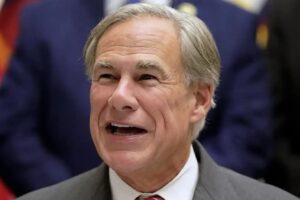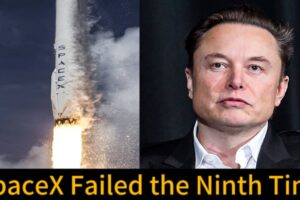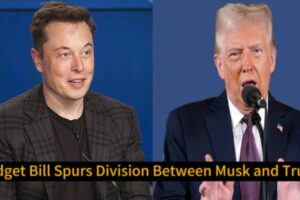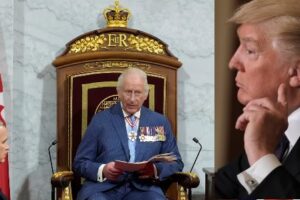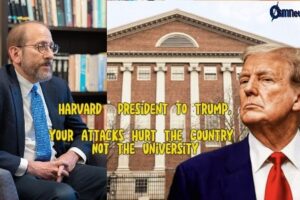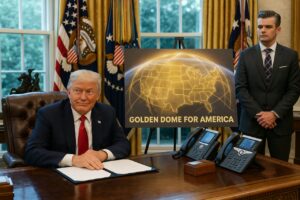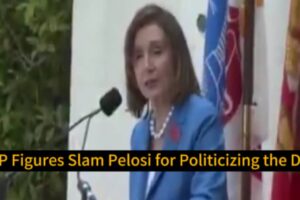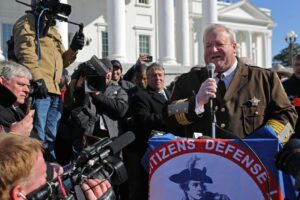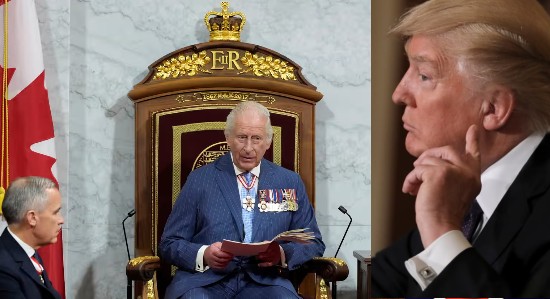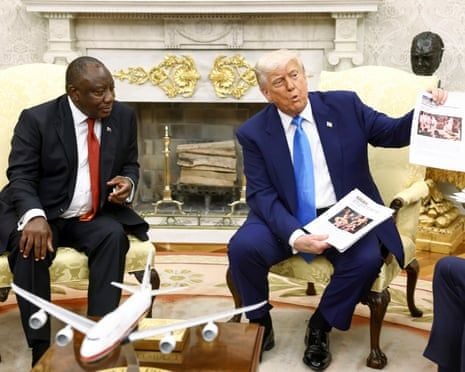King Charles in a Rare Royal Speech With Modern Significance; Monarch underscores democracy, sovereignty, and transformation as Canada faces cross-border uncertainty
On May 27, 2025, King Charles III addressed the Canadian Parliament in a rare and deeply symbolic appearance—his first official Speech from the Throne in Canada and the first such address by a reigning monarch since Queen Elizabeth II in 1957. His speech came at a time of increasing geopolitical friction, especially with the United States under President Donald Trump’s second term.
Although the King did not mention the U.S. president by name, his message served as a poignant contrast to Trump’s recent rhetoric suggesting Canada’s annexation as the 51st state and the imposition of new tariffs on Canadian goods. The King’s words drew a clear line in the sand, reiterating Canada’s sovereignty, values, and its determination to shape its own future.
King Charles: Sovereignty and Resilience at the Forefront
King Charles rooted his speech in history, referencing the legacy of his late mother, Queen Elizabeth II, and the post-war era that defined Canada’s rise as a global economic power. He acknowledged past international upheavals—from the Cold War to the Vietnam War—and framed the current global disorder as yet another crucible for Canadian fortitude.
“Fundamental change is always unsettling,” the King noted, addressing the Canadian people’s growing anxiety over global instability. Yet he framed the moment as an opportunity: a chance for “renewal,” to “think big and act bigger,” and to embark on “the largest transformation of its economy since the Second World War.”
King Charles’ Diplomatic Yet Firm Message to Washington
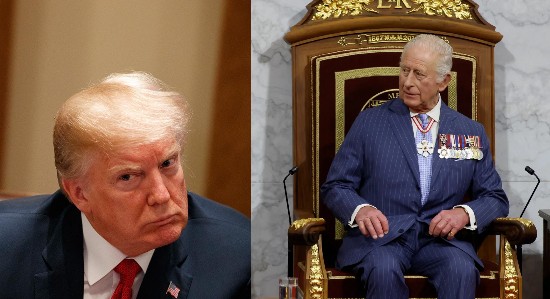
While avoiding direct confrontation, King Charles’ speech was widely read as a diplomatic rebuke to President Trump’s expansionist posture and economic aggression. His references to self-determination, democracy, and open trade echoed the frustrations of Canadian leaders navigating increasingly tense U.S.-Canada relations.
The King’s affirmation that Canada’s “relationships with partners are changing” signaled a broader shift in the nation’s international strategy. It underscored that Canada would not allow its sovereignty to be treated as negotiable, even by its most powerful ally.
The Monarchy’s Role in a Transforming Canada
King Charles’ presence also reignited conversation about the monarchy’s role in Canadian governance. Although ceremonial, his visit served as a symbolic assertion of constitutional continuity and unity. The inclusion of Queen Camilla in the King’s Privy Council—a largely symbolic but constitutionally significant gesture—further highlighted the monarchy’s evolving place in Canadian political life.
Analysts noted that the timing of the visit, amid both domestic and international pressures, signaled a more engaged and active monarch who is aware of the delicate balancing act facing Commonwealth nations like Canada.
Mixed National Reactions, Deepening National Conversations
The speech generated diverse reactions across the political and cultural spectrum. Indigenous leaders responded positively, citing the historic treaties between their nations and the Crown. Many emphasized the need for continued engagement, not just ceremonial acknowledgment.
In contrast, members of the Bloc Québécois and some republican voices questioned the relevance of the monarchy in a modern, pluralistic Canada. Nonetheless, the overall reception was largely respectful, with many Canadians welcoming the clarity and historical weight the King Charles’s message brought to a moment of national uncertainty.
A Nation Looking Inward—And Forward
As Canada stands at a crossroads, King Charles’ address may be remembered less for royal protocol and more for its substance and timing. In an era marked by growing nationalism, protectionism, and diplomatic volatility, the King’s words provided a reminder of Canada’s enduring values: democracy, pluralism, and rule of law.
Whether the speech helps to reshape public discourse or influence government policy remains to be seen. But in echoing the voices of anxious citizens and affirming a vision of independent, forward-thinking governance, King Charles may have just reignited a national conversation Canada sorely needed.


